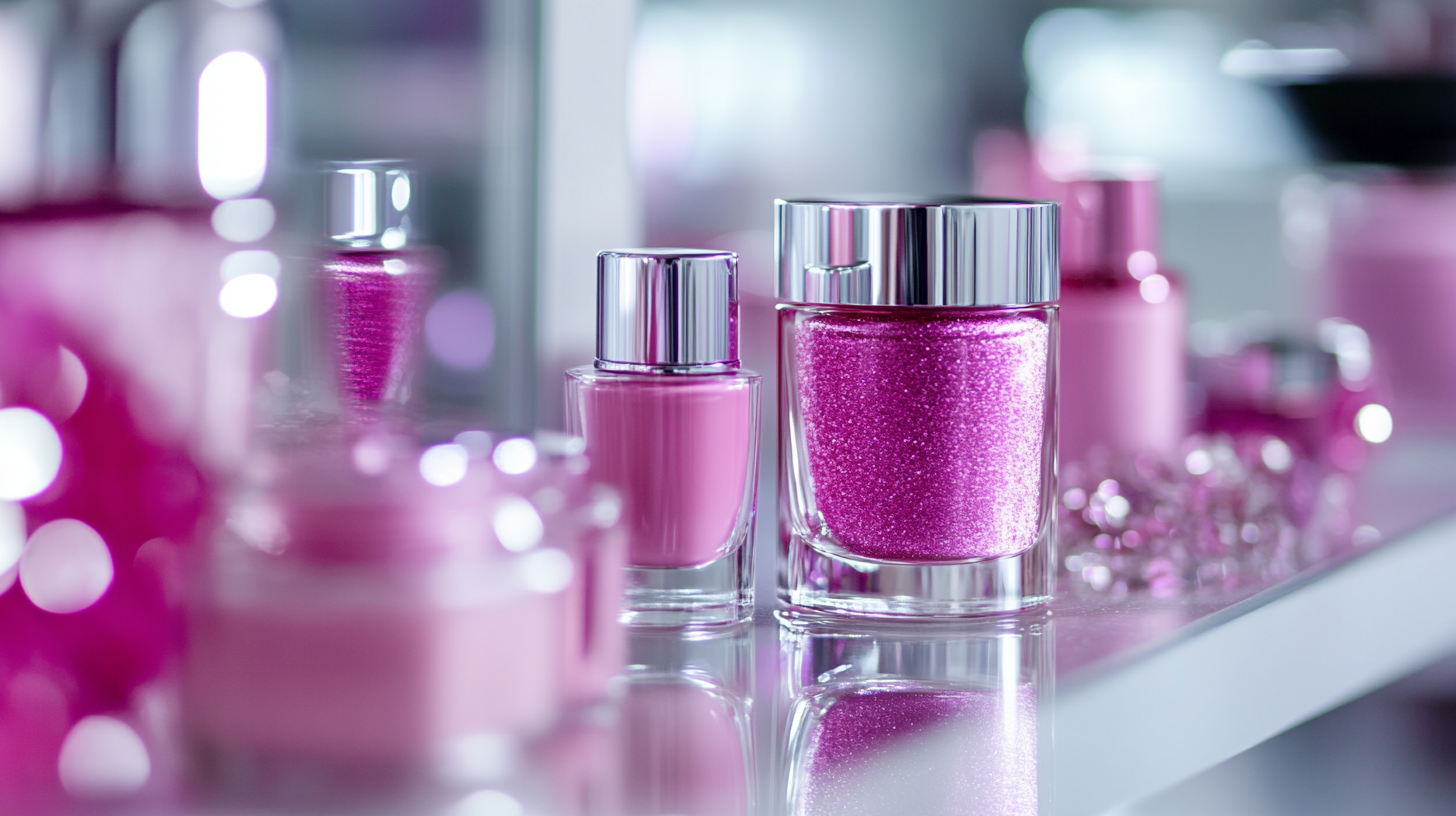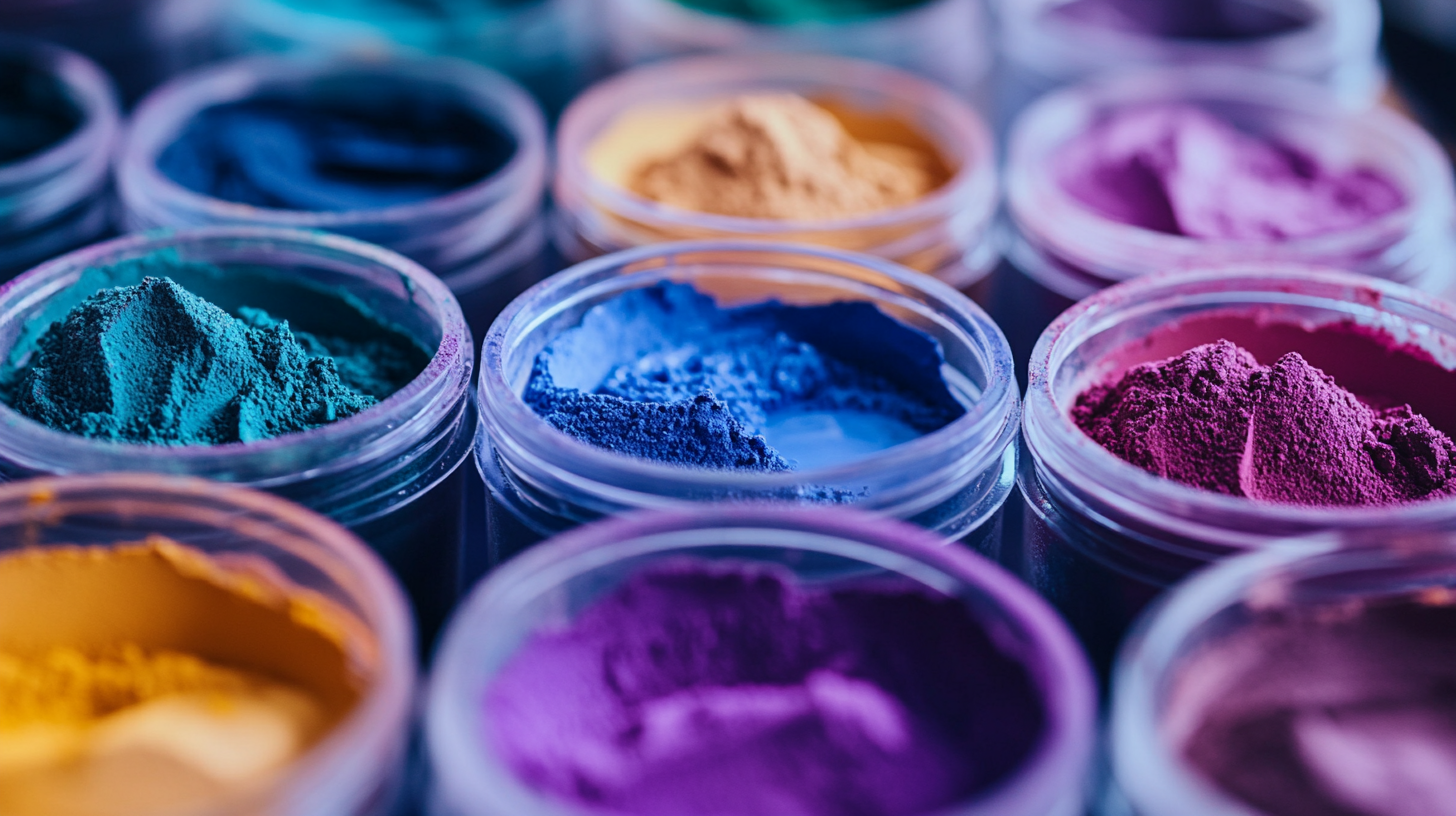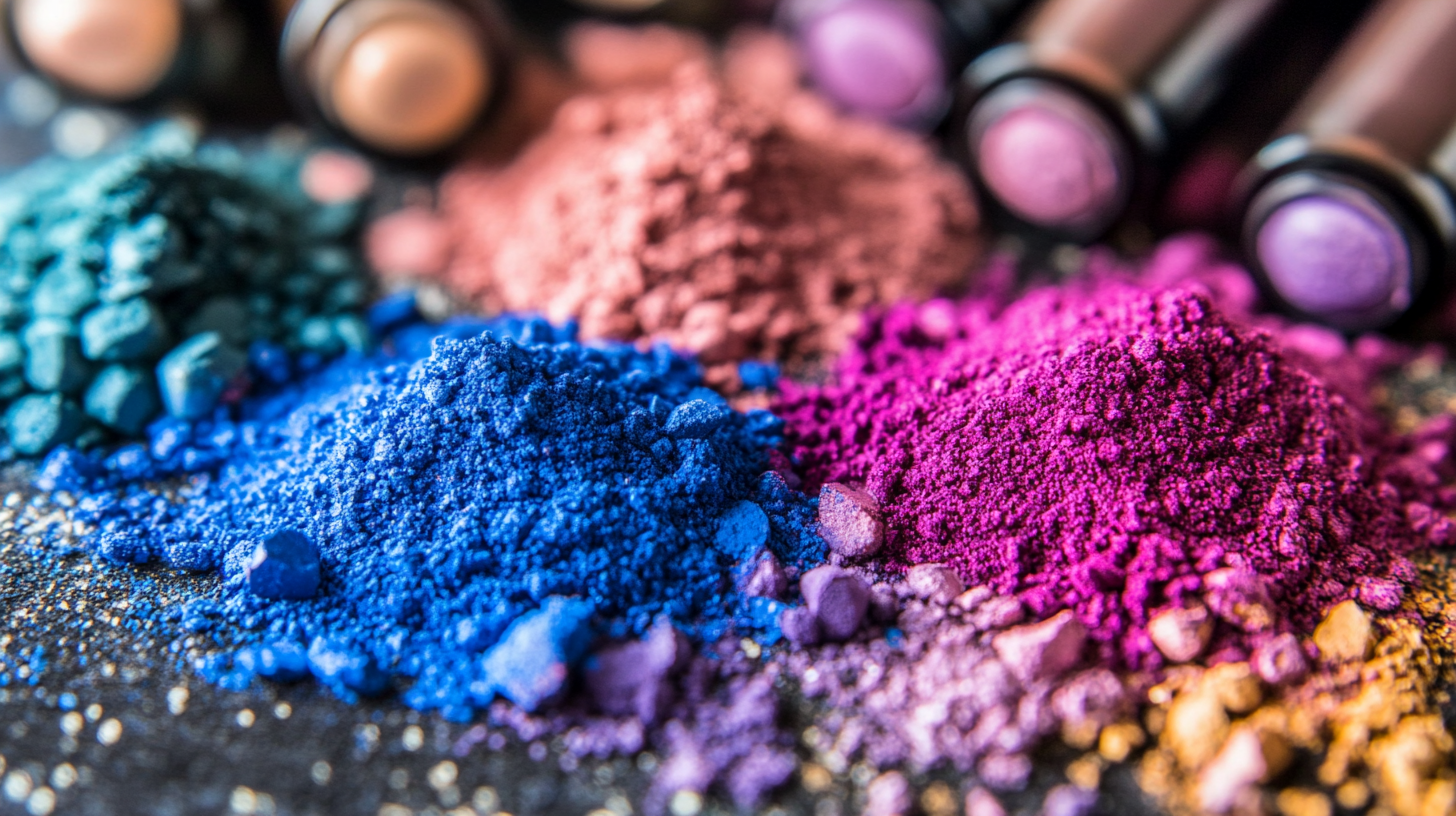The cosmetics industry is projected to reach a staggering market value of over $800 billion by 2025, with a significant portion of this growth driven by advancements in cosmetic ingredients and formulations. As consumers become increasingly savvy and demand transparency, understanding the efficacy and safety of cosmetic ingredients has never been more crucial. According to the 2021 Cosmetica Report, nearly 70% of consumers consider ingredient transparency a top priority when purchasing beauty products. This guide aims to unlock the secrets of the best cosmetic ingredients, exploring industry standards, innovative formulations, and the science behind achieving flawless results. By disseminating this vital information, we empower both industry professionals and consumers to make informed choices that not only enhance beauty but also ensure safety and sustainability within the ever-evolving cosmetics landscape.

When it comes to developing effective anti-aging formulations, the cosmetic industry has turned to clinical trials to identify the most promising ingredients. One standout is retinol, a derivative of vitamin A known for its ability to accelerate cell turnover and stimulate collagen production. This powerhouse ingredient has been rigorously tested, with research demonstrating its efficacy in reducing fine lines and improving skin texture. With a growing body of clinical evidence, retinol has become a staple in many skincare routines, proving that scientific backing is essential in determining product effectiveness.
Another noteworthy ingredient is hyaluronic acid, lauded for its impressive hydration capabilities. Clinical trials have shown that this naturally occurring substance can hold up to 1,000 times its weight in water, making it ideal for plumping and moisturizing the skin. Its ability to penetrate deeper layers of the skin ensures that hydration is locked in, resulting in a more youthful appearance. As consumers become increasingly savvy about ingredients, the demand for clinically proven components like retinol and hyaluronic acid continues to grow, underscoring the importance of science in crafting flawless formulations.

Hyaluronic acid (HA) is a powerhouse ingredient in the realm of skincare, renowned for its exceptional ability to retain moisture and enhance skin plumpness. Research indicates that hyaluronic acid can hold up to 1,000 times its weight in water, making it a critical component in hydrating formulations. According to a report by Grand View Research, the global hyaluronic acid market was valued at approximately $8.4 billion in 2022 and is projected to grow at a compound annual growth rate (CAGR) of 7.9% from 2023 to 2030, underscoring its increasing popularity among consumers seeking effective anti-aging solutions.
Incorporating hyaluronic acid in moisturizers and serums helps to provide a deep hydration that is both immediate and long-lasting. Clinical studies reveal that formulations containing HA improve skin hydration levels significantly within just a few hours of application. Notably, a study published in the Journal of Cosmetic Dermatology highlighted that participants using products with hyaluronic acid saw a 40% increase in skin hydration over a four-week period. Its ability to bind moisture to the skin not only enhances hydration but also provides a smoother, more youthful appearance, making it an essential ingredient in the pursuit of flawless skin.
| Ingredient | Function | Benefits | Common Uses |
|---|---|---|---|
| Hyaluronic Acid | Moisturization | Hydration, Skin Plumping, Reduces Fine Lines | Serums, Creams, Face Masks |
| Glycerin | Humectant | Attracts Moisture, Softens Skin | Lotions, Creams, Cleansers |
| Niacinamide | Brightening | Improves Skin Tone, Reduces Redness | Serums, Moisturizers, Sunscreens |
| Retinol | Anti-Aging | Increases Cell Turnover, Reduces Wrinkles | Creams, Serums, Night Treatments |
| Vitamin C | Antioxidant | Brightens Skin, Promotes Collagen Production | Serums, Moisturizers, Masks |
Peptides have quickly emerged as a cornerstone in the world of skincare, heralding a new era of skin repair and regeneration. These small chains of amino acids are the building blocks of proteins in the skin, playing a crucial role in maintaining its structure and function. By mimicking the body’s natural processes, peptides signal cells to produce collagen, elastin, and other essential proteins, thereby significantly improving skin resilience and firmness. Their targeted action not only enhances skin repair but also promotes a more youthful appearance.
What sets peptides apart is their ability to penetrate the skin barrier more effectively than many traditional ingredients. This means they can deliver powerful results, addressing common concerns such as fine lines, wrinkles, and loss of elasticity. As consumers become more ingredient-savvy, products containing peptides are increasingly sought after for their proven efficacy and versatility. Whether in creams, serums, or masks, incorporating peptides into your skincare regimen can revolutionize your approach to skin health, offering a pathway to rejuvenation and radiance that was once only available through more invasive treatments.
Vitamin C, or ascorbic acid, is a powerhouse ingredient revered in the cosmetic industry for its multifaceted benefits in both brightening skin tone and combating signs of aging. According to a study published in the Journal of Clinical and Aesthetic Dermatology, topical application of Vitamin C has been shown to reduce the appearance of fine lines and wrinkles by stimulating collagen synthesis. In fact, a clinical trial reported a significant improvement in skin texture and elasticity after just 12 weeks of consistent use, highlighting Vitamin C's efficacy in anti-aging formulations.

Furthermore, Vitamin C's ability to inhibit melanin production makes it an excellent choice for brightening dark spots and uneven skin tone. A comprehensive report from the American Journal of Clinical Dermatology confirms that formulations containing at least 10% Vitamin C can yield visible results in less than 4 weeks. This rapid efficacy is attributed to its antioxidant properties, which help neutralize free radicals and minimize oxidative stress on the skin. Thus, incorporating stable forms of Vitamin C in cosmetic formulations not only enhances their brightening effects but also ensures lasting skin health and radiance.
Sustainable sourcing of cosmetic ingredients is increasingly becoming a key factor in the beauty industry, influencing not just the efficacy of products but also their environmental footprint. As consumers become more conscious of their purchasing decisions, brands are challenged to ensure their ingredients are ethically sourced. This includes opting for natural, organic components that minimize environmental impact while supporting local economies. By prioritizing sustainable practices, cosmetic companies can create formulations that are not only effective but also responsible.
Moreover, the synergetic relationship between sustainability and product efficacy cannot be overlooked. Ingredients that are sustainably sourced often carry higher quantities of bioactive compounds, enhancing the overall performance of cosmetics. For instance, plant-based ingredients derived from regenerative agriculture not only reduce carbon footprints but also provide superior benefits for skin health. By investing in sustainable sourcing, brands not only foster a healthier planet but also cater to a discerning audience that values quality and environmental stewardship. Such commitments reflect a broader shift towards a more sustainable beauty industry, paving the way for innovation in both product formulations and sourcing practices.
2025 Bio-Botanica, a division of Bio Answer Holdings Inc. All Rights Reserved.